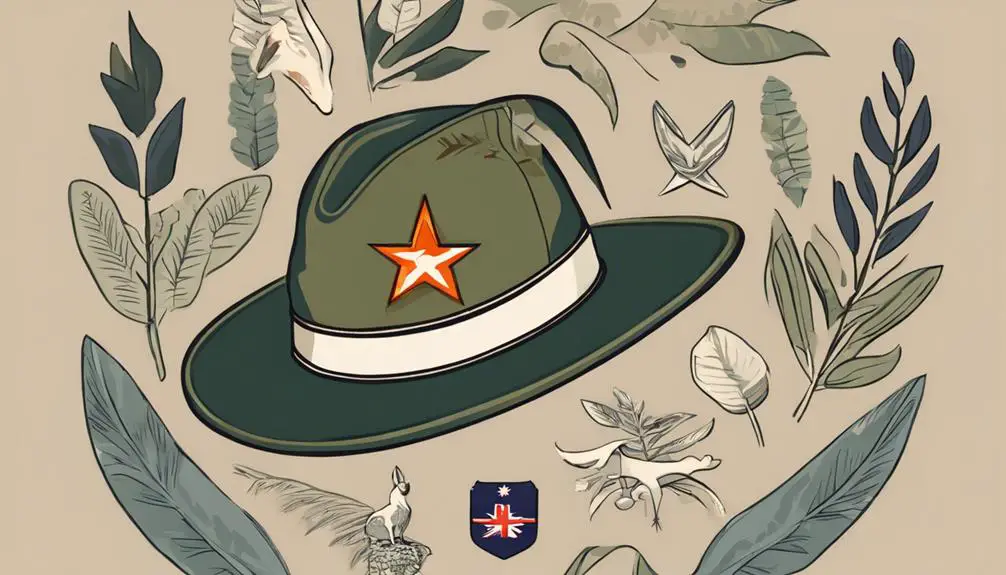You're interested in Aussie military slang, which is a unique dialect born from Australia's colonial history and British military influence. This distinct language is essential for communication, camaraderie, and coping with military pressures. You'll find colorful slang in everyday situations, like mealtime and cleaning up, which adds humor and creates a sense of community. In high-pressure combat scenarios, specific phrases enable quick and accurate communication. As you explore Aussie military slang, you'll discover more about its evolution, ranks and roles, and humor – and uncover the nuances that make it such an integral part of military life.
Origins of Aussie Military Lingo
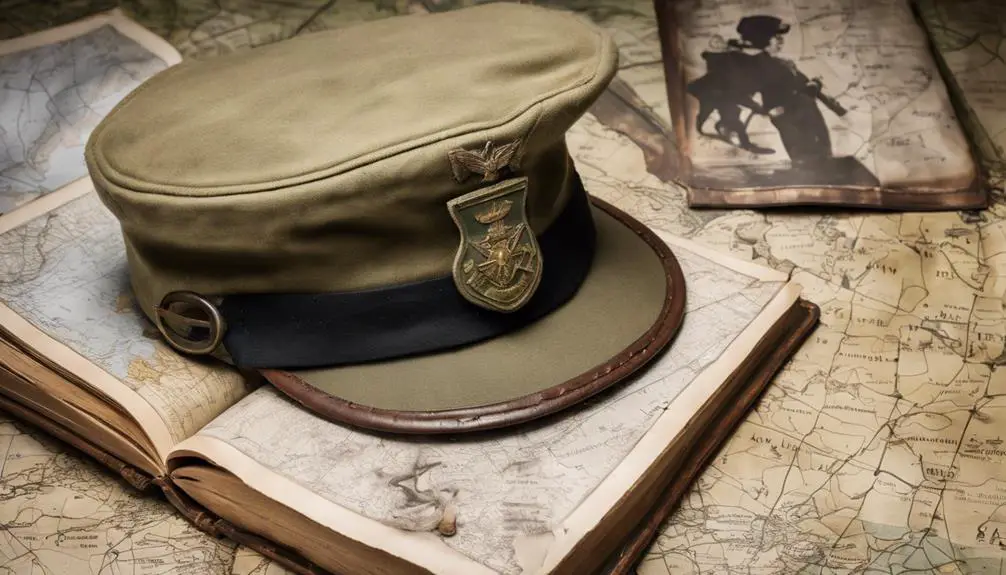
You're about to immerse yourself in the fascinating world of Aussie military slang, and it all begins with its origins. Australian military slang has its roots in the country's early colonial history, when British military forces brought their own colloquialisms to the continent.
As you explore the historical roots of this unique language, you'll discover a rich linguistic evolution that's shaped by the country's military heritage.
The British military's influence is undeniable, with many British slang terms being adopted and adapted by Australian soldiers. Over time, these terms evolved to reflect the Australian context, incorporating local dialects and cultural nuances.
This blending of linguistic styles gave birth to a distinct Aussie military slang that's both colorful and expressive.
As you dig deeper into the world of Aussie military slang, you'll uncover a language that's deeply rooted in the country's history and cultural identity.
The linguistic evolution of Aussie military slang is a reflection of the dynamic and adaptive nature of language, and its historical roots are a fascinating topic of exploration.
Slang for Everyday Situations
In the Australian military, everyday situations are often peppered with colorful slang that adds flavor to routine tasks and conversations. You'll find that even mundane activities like mealtime are infused with unique terminology.
For instance, when you head to the Mess Hall for a bite, you might hear someone say, 'I'm going to scran some grub.' In Aussie military slang, 'scran' means to eat, and 'grub' refers to food.
During Canteen Chats, you might overhear phrases like 'How's the serenity?' which roughly translates to 'How's life?' or 'How's everything going?' When you're chatting with your mates, you might use expressions like 'She'll be right' (meaning 'It's all good') or 'No worries' to convey a carefree attitude.
Even tasks like cleaning up are given a casual spin, with phrases like 'Let's get the dust out' (meaning 'Let's clean up'). These everyday slang expressions bring a touch of humor and camaraderie to daily life in the Australian military.
As you navigate the ups and downs of military life, you'll find that this colorful language helps create a sense of community and shared experience.
Combat and Operations Terms
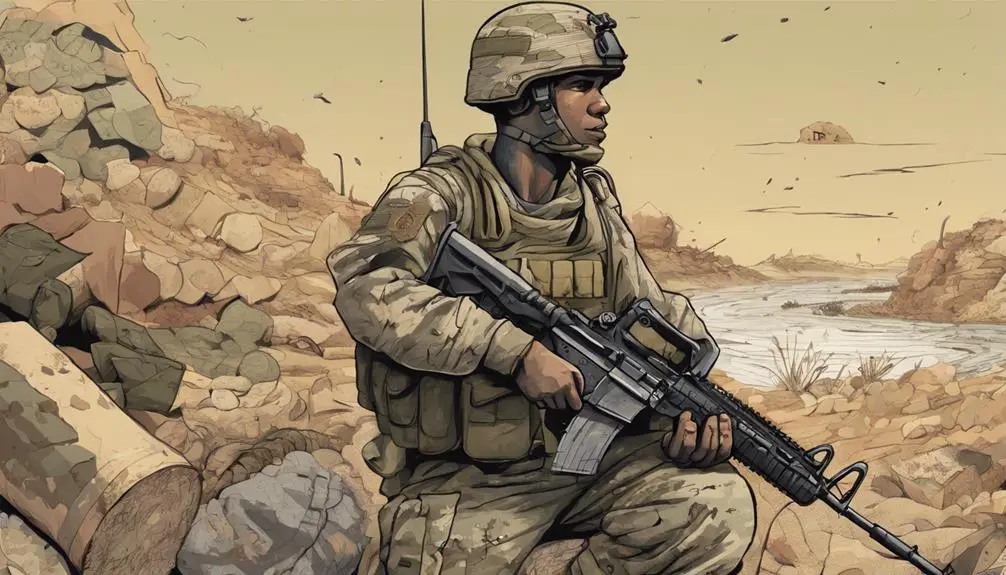
During intense operations, Aussie military personnel rely on a distinct set of terms to convey critical information quickly and accurately. You'll hear them using specific phrases to communicate complex ideas in high-pressure situations. In combat scenarios, every second counts, and clear communication is vital.
Tactical Insertions, for instance, refer to the deployment of troops or equipment into a specific area, often via helicopter or aircraft. This term is essential in conveying the plan of action to all team members.
Battle Drills, on the other hand, are rehearsed procedures for reacting to specific combat scenarios, such as responding to an ambush or conducting a room clearance. These drills are practiced repeatedly to ensure a swift and effective response.
You might also hear Aussie military personnel using terms like 'SITREP' (situation report) to provide updates on the battlefield, or 'CAS' (close air support) to request air support. These specialized terms enable personnel to convey complex information quickly and accurately, ensuring a coordinated response in high-stress environments.
Ranks and Roles in Slang
Many Aussie military personnel use colloquialisms to refer to ranks and roles, making it essential to understand these slang terms to navigate the complex hierarchy of the Australian Defence Force.
You'll hear rookie ranks like 'Nugget' or 'Sprog' thrown around to refer to new recruits. These terms are often used affectionately, but they can also be used to tease or test newcomers.
When it comes to officer nicknames, you might hear 'Boss' or 'Skipper' to address a senior officer. These terms show respect and are often used in informal settings.
You might also hear 'Gunner' or 'Sarge' to refer to non-commissioned officers like sergeants or gunnery sergeants. It's essential to understand these slang terms to communicate effectively with your team and show respect for the chain of command.
Aussie Military Humor and Banter
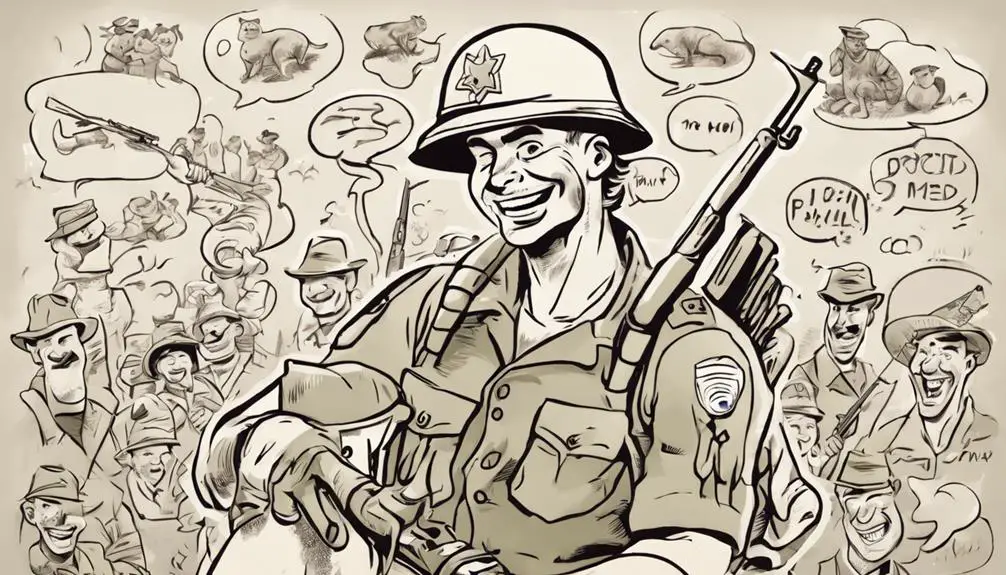
What's behind the Aussie military's notorious sense of humor, and how do they use banter to build camaraderie and cope with the pressures of military life?
You'll often find it in the Mess Hall Antics, where soldiers crack jokes and tease each other over meals. These lighthearted moments help break the tension and create a sense of belonging.
In the barracks, you'll find the Barrack Room Jesters, the self-proclaimed comedians of the group. They're the ones who keep everyone's spirits high with their quick wit and sarcastic humor.
Aussie military humor is all about poking fun at each other and themselves. It's a way to release steam and cope with the stresses of military life. By using humor, soldiers can momentarily forget about the dangers and challenges they face.
This banter also helps to build strong bonds between soldiers, creating a sense of camaraderie that's essential in high-pressure situations.
Slang in Different Military Branches
You'll discover that each branch of the Aussie military – Navy, Army, and Air Force – has its unique slang, shaped by their distinct roles and environments.
The Navy, for instance, has its own set of colloquialisms that reflect its maritime focus. You might hear sailors referring to their ship as 'the boat' or 'the vessel,' and using terms like 'port' and 'starboard' to describe directions.
In contrast, the Army's slang is often more rugged and practical, reflecting its focus on land-based operations. You might hear soldiers using terms like 'dig in' to describe setting up camp or 'sanga' to refer to a sandwich.
The Air Force, meanwhile, has its own brand of jargon that's deeply rooted in aviation. You might hear airmen using terms like 'flight line' to describe the area where planes are serviced or 'sortie' to describe a single mission.
Understanding these differences in slang can give you a glimpse into the unique culture and identity of each branch. By exploring the distinct slang of each branch, you'll gain a deeper appreciation for the nuances of Aussie military culture.
Evolution of Military Slang Over Time
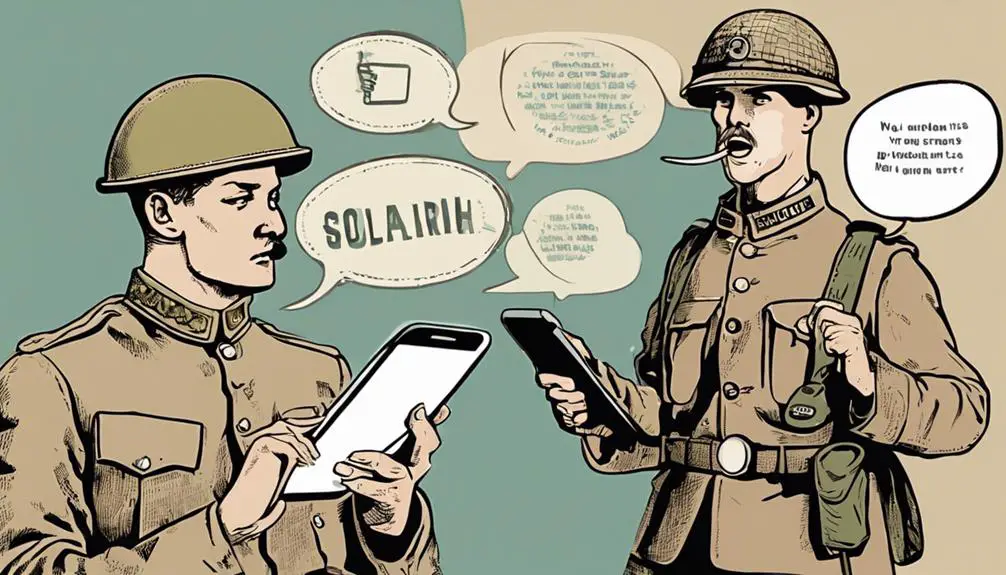
As you explore the unique slang of each branch, you'll notice that it's not static, and its evolution over time reflects the changing nature of warfare and military operations. The language adapts to new technologies, tactics, and cultural influences, guaranteeing that military slang remains relevant and essential.
Influence factors, such as cultural exchange, technological advancements, and operational requirements, drive language adaptation in the military. For instance, the introduction of new equipment or weaponry often leads to the creation of new slang terms. Similarly, the increasing presence of women in the military has contributed to the development of more inclusive language.
The evolution of military slang also reflects broader societal trends and cultural shifts. As the military becomes more diverse, its language adapts to accommodate different backgrounds and experiences. This dynamic nature of military slang ensures that it remains a crucial tool for communication, camaraderie, and shared identity within the military community.
Frequently Asked Questions
Are There Any Aussie Military Slang Words Specific to Women in the Military?
You might wonder if there are specific terms used to describe women in the military. Surprisingly, female comrades in the Australian military have adopted some unique slang.
While there isn't a plethora of terms exclusive to women, you'll hear 'Sisterhood Squads' used to describe tight-knit groups of female soldiers. These women often form strong bonds, relying on each other in high-pressure situations.
It's a demonstration of their camaraderie and dedication to their country.
Can Aussie Military Slang Be Used in Formal Written Reports?
You're carefully maneuvering through a minefield when it comes to using colloquial language in formal reports. Generally, it's best to avoid using slang, including Aussie military slang, in formal written reports.
You want your report to be a beacon of clarity, not a puzzle that needs deciphering. Stick to formal language to guarantee report clarity and avoid any miscommunication.
Save the colloquialisms for casual conversations, and keep your report professional and concise.
Are There Any Cultural or Ethnic Slurs in Aussie Military Slang?
You might wonder if cultural or ethnic slurs exist in certain forms of slang.
Historically, linguistic evolution can sometimes lead to offensive terminology with racial undertones or ethnic stereotypes.
It's important to exercise cultural sensitivity when exploring slang, as words can be hurtful or perpetuate negative stereotypes.
In any context, it's vital to be mindful of language that may offend or demean certain groups.
Do Other English-Speaking Countries Use Similar Military Slang?
You're about to start on a linguistic mission to uncover the secrets of military slang! When it comes to military lingo, you'll find that other English-speaking countries have their own unique flavor.
Take the US Military, for instance, where 'HOOAH' is a battle cry, and 'FNG' means 'Freaking New Guy.'
Across the pond, UK Lingo uses 'Gutted' to express disappointment and 'Chin-Wag' for a casual chat.
While each country has its distinct slang, they all serve as a badge of honor for those who serve.
Is Aussie Military Slang Used by Military Veterans in Civilian Life?
When you leave the military, you often struggle to adjust to civilian life. You might find yourself clinging to the camaraderie factor, seeking a sense of belonging that's hard to replicate outside the forces.
Your post-service identity is closely tied to your military experience, and using military slang can be a way to hold onto that sense of self. In Australia, many veterans do carry their military slang into civilian life, as a way to maintain a connection to their past and the bonds they formed during service.
Conclusion
You've now got a fair dinkum understanding of Aussie military slang. As you've seen, it's a ripper of a language that's been forged in the heat of battle and tempered with a healthy dose of humor.
So, next time you're chatting with a digger, don't be a galah – toss in some slang and show 'em you're a true blue Aussie. And who knows, you might just find yourself saying 'fair suck of the sav' when your mate scores a sweet deal on a slab of tinnies at the pub.
Cheers, mate!

